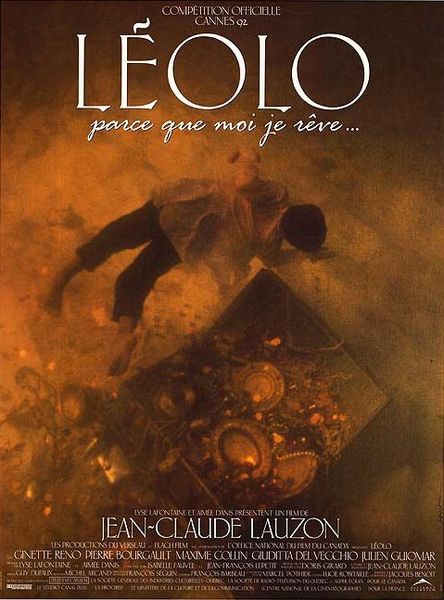For a short period after my first viewing of the 1992 film Léolo, the final feature from Montreal director Jean-Claude Lauzon, my impressions were left in what I can only describe as a temporary state of limbo. I was left uncertain of my discernment, having noticed a comingling of various tones and subject matter which, according to coming-of-age conventions, should not work. Yet, upon reflection it does, with its profoundness growing at every passing thought and rumination.
It is clear that Lauzon has placed a great deal of himself into the film, both artistically and personally, even going so far as to grant the main character, Leo Lauzon, his surname. However, the Montreal-based Leo rejects his birth name in favour of Léolo Lozone, as his wild imagination has him believe he was conceived when a tomato covered in the semen of an Italian happens to impregnate his mother at the market…no doubt a fun pitch to studio executives!
Léolo uses his imagination as a means of escaping his less desirable reality. Lauzon humourously substitutes the clichéd strict religious parent for a father who is convinced that daily defecation is the cornerstone of good health. So, instead of taking communion bread, Léolo and his siblings are given laxatives in a similar fashion, and all the while you can feel Lauzon winking at you from behind the camera! While I admit this does not seem overtly traumatic for a child, the resulting comedy does well to distract viewers from the true villain of the film: Léolo’s own mind.
As time goes on, it becomes increasingly apparent that Léolo’s imaginings are less the results of an active mind on the cusp of adolescence, and more the emerging delusions of a gifted, but increasingly unstable mind. This realisation drastically alters the outlook of the film’s seemingly simple concept, and justifies its eclectic nature.
Take Léolo’s failed attempt to hang his own grandfather as he bathes for example. This scene is both comically twisted and frighteningly dark, embodying the film’s uniquely cohesive marriage of conflicting tones and subject matter. Lauzon’s deliberate plotting and direction blurs the line between Léolo’s dreams and reality, evoking profoundly shocking moments upon realising that such instances are no imaginary figments.
Léolo arouses a variety of emotions during its runtime, some of them simultaneously, though they are never at war with one another. The film’s final moments inflects all that precedes it with an ominous shadow that grows longer the more I reflect upon it. It is no longer a coming-of-age film, as Léolo will never truly come of age. His budding poetic talent and sexual exploration will never advance beyond what we see, which is a cruel joke, but affective cinema.
Léolo is an example of a director’s singular artistic image, and while it is unorthodox and may take time to soak in, I cannot deny that Lauzon has achieved something I had not thought possible before.

